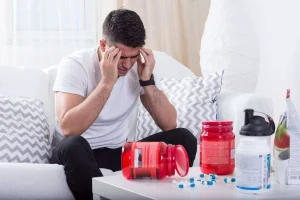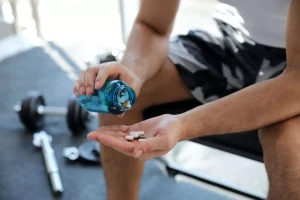
Another noteworthy option is LifeRing Secular Recovery, which centers on self-empowerment. LifeRing fosters a supportive environment where members can share experiences and strategies for sobriety while avoiding reliance on higher powers. It can even reduce pain, anxiety, and alcohol cravings, according to a 2018 review of mindfulness research as it relates to AUD (8). No matter what your sobriety journey looks like, a supportive community can be crucial to sticking with it. It can help to have a trusted confidant or two with whom you can share your struggles, successes, and revelations. The standard AA program provides an overview of how the addict is powerless against the disorder they are suffering from.
So You’re Trying to Stay Sober Without AA?

If you have questions about these programs or other treatment options for alcohol and drug abuse, reach out toThe Recovery Villagefor more information. HAMS harm reduction for alcoholencourages its members to set their own goals regarding alcohol and drug use. Harm reduction for one person might mean drinking two drinks a day instead of ten, while it might mean complete sobriety for someone else. As long as the individual is making recovery without aa an improvement and reducing self-harm, their goals align with HAMS.
Mental Health Treatment
A primary reason 12-step works for so many people (in my opinion) is it sets you up with a new social scene, full of folks just like yourself. If you choose to quit drinking without AA, it’s important to consider your current social scene and whether or not you’d like to change that. If you need sober friends and don’t do support groups, Meetup has great local activities that will allow you to get out of the bars and meet people in positive environments. Exercise can support your recovery by boosting your brain, battling the brain disorder of alcohol use disorder. Check out why person in long-term recovery and counselor, Chrissy Taylor, encourages exercise in early sobriety.
- If you choose to quit drinking without AA, it’s important to consider your current social scene and whether or not you’d like to change that.
- There is no one-size-fits-all model, and AA alternatives provide another avenue for long-term sobriety that some people find more effective.
- The social aspect of groups like Alcoholics Anonymous can add a pleasant camaraderie that highlights that you are far from the only person struggling with alcoholism.
- This support group offers a welcoming community and a comprehensive approach to addiction recovery, incorporating mindfulness and meditation techniques to help you cope with other unexpected life events.
- To access their meetings, workshops, and resources, visit their website and join the online community.
- Meetings are kept confidential and provide a great space for people to share their experiences and gain support from peers in similar situations.
The Role of Detoxification in Addiction Recovery
They interviewed 16 people who were deans or campus mental-health professionals at Canadian universities, with a combined 300 years of service, about instances of faculty members disclosing substance-use disorders. Across all 16, a total of only 3 such disclosures had been made to them during their careers, all regarding alcohol use. Dossett is not alone, but academics who struggle with substance-use disorders, or who are recovering from them, are often hidden from view.
It is important to explore all options and https://ecosoberhouse.com/ find what works best for you in your journey toward Recovery and Sobriety. Another advantage of staying sober without AA is the opportunity to build a support system outside of the program. While AA meetings can provide a sense of community, it is possible to find support in other ways. One benefit of staying sober without AA is the ability to customize your own recovery plan. Without the constraints of a specific program, you have the freedom to explore different treatment options and find what works best for you.

The Benefits of Volunteering During Addiction Recovery
People need to understand that drug abuse therapy does not only include AA, however. With as many as 60% of people who undergo treatment suffering a relapse, many are looking for AA alternatives that could offer them a better chance for long-term sobriety. Fortunately, several alternatives to AA programs exist and can often yield high success rates to help the patient overcome addiction. AA has more than 2 million members worldwide in over 100,000 locally supported groups. Read on to learn about alternative support groups to help you maintain your sobriety.
Sobriety coaches work with clients to reduce or stop their drinking, often using CBT techniques like motivational interviewing (MI). A 2018 study found that MI can have a positive effect on people with AUD, including increasing their self-esteem (7). One-on-one psychotherapy with a trained therapist is another way to address your drinking. There are therapists who specialize in AUD, and psychiatrists can prescribe medication for AUD or co-occurring mental health conditions. Naltrexone is a prescription medication that immediately reduces the “buzz” of alcohol and curbs cravings in the long term. Unlike other treatments that require immediate abstinence, the Sinclair Method allows you to keep drinking when you start naltrexone.

Ria Health offers several FDA-approved medications for alcohol use disorder. Mindfulness practices, such as meditation, yoga, and deep breathing, help reduce stress, manage emotions, and decrease cravings. By engaging the prefrontal cortex and reducing reliance on the default mode network, mindfulness can create physical changes in the brain that support sobriety. Relapse is very common during recovery, and it does not mean that you failed. If you experience relapse, the most important thing to do is pick back up with treatment and keep developing coping strategies to prevent the chances of relapse happening again. If you have struggled with alcoholism and are hoping to achieve sobriety for good, there are many ways to do it without attending AA.
LifeRing Secular Recovery
- The group works on developing techniques to enhance this version of self instead of the addict self who has previously been in control of all decisions and led to destruction in life.
- Embarking on a journey to become “sober without AA” can seem daunting, yet it’s entirely possible with the right strategies and support systems in place.
- There are many paths to changing your relationship with alcohol, and it may take some experimentation to figure out what treatment—or combination of treatments—is most effective for your unique needs.
- In this section, we will explore various ways to build a sober social network.
They can also be an invaluable source of practical advice for things like withdrawal and or even repairing relationships with estranged loved ones. Secular Organizations for Sobriety (SOS) programs are a conglomeration of recovery programs, both online and in-person, which provide an alternative to AA. There Sober living house are several books and resources that can help individuals stay sober without AA, such as “The Sober Diaries” by Clare Pooley, “This Naked Mind” by Annie Grace, and “The Unexpected Joy of Being Sober” by Catherine Gray. Online resources, such as podcasts and blogs, can also provide support and inspiration. Remember, staying sober is a journey, and it’s okay to ask for help along the way.

